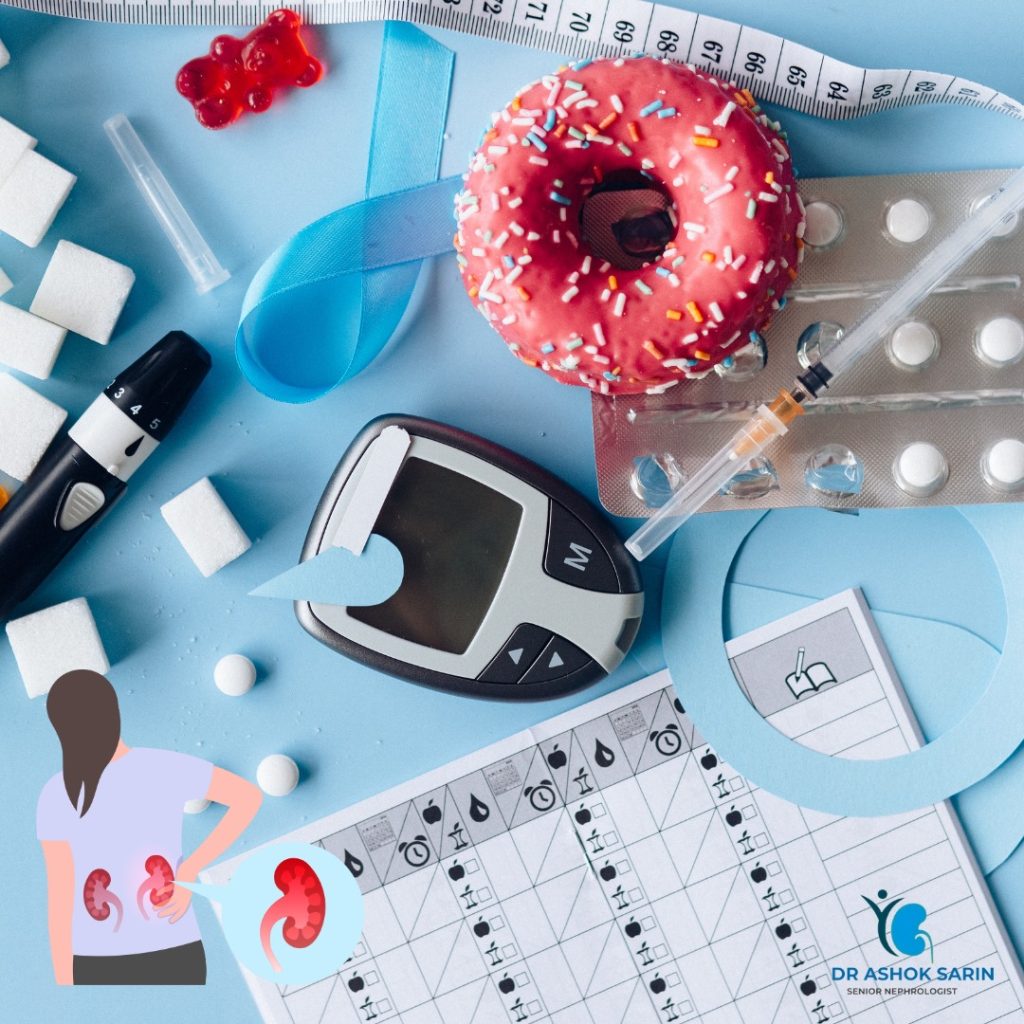Kidney Disease and Diabetes: Managing Two Chronic Conditions
Kidney Disease and Diabetes: Managing Two Chronic Conditions
Kidney disease and diabetes often occur together, creating a complex health challenge that requires careful management. Diabetes can lead to kidney damage, while existing kidney disease can make managing diabetes more difficult. Understanding how to manage these conditions simultaneously is crucial for maintaining health and preventing complications.
The Connection Between Kidney Disease and Diabetes
Diabetes, particularly when poorly controlled, can damage the kidneys over time. High blood sugar levels cause damage to the blood vessels in the kidneys, leading to diabetic nephropathy, a form of chronic kidney disease. Conversely, kidney disease can make it harder to manage blood glucose levels, complicating diabetes control and potentially leading to worse outcomes.
Managing Diabetes to Protect Your Kidneys
- Control Blood Sugar Levels:
- Monitoring: Regularly check blood glucose levels to keep them within target ranges. This helps prevent kidney damage and other diabetes-related complications.
- Medication Adherence: Take diabetes medications as prescribed by your healthcare provider. Insulin or oral medications help manage blood sugar levels effectively.
- Healthy Diet:
- Balanced Meals: Focus on a diet rich in vegetables, fruits (within recommended amounts), whole grains, and lean proteins. This supports overall health and helps regulate blood sugar.
- Carbohydrate Management: Monitor carbohydrate intake to manage blood sugar levels. Use carbohydrate counting or exchange lists if recommended by your dietitian.
- Regular Exercise:
- Physical Activity: Engage in regular physical activity, such as walking, swimming, or cycling, to help control blood sugar levels, manage weight, and improve cardiovascular health.
- Consistency: Aim for at least 150 minutes of moderate-intensity exercise per week, as advised by your healthcare provider.
- Blood Pressure Management:
- Medications: Use blood pressure medications as prescribed, especially if you have hypertension, which is common in diabetes and can exacerbate kidney damage.
- Lifestyle Changes: Implement lifestyle changes such as reducing sodium intake, maintaining a healthy weight, and managing stress to support blood pressure control.
- Regular Monitoring:
- Kidney Function Tests: Regularly monitor kidney function through blood tests (e.g., creatinine, eGFR) and urine tests (e.g., proteinuria) to detect any changes early.
- A1C Testing: Get regular A1C tests to measure average blood glucose levels over the past 2-3 months, aiming to keep it within target ranges.
Managing Kidney Disease to Improve Diabetes Control
- Adjust Medications:
- Medication Review: Some diabetes medications are processed by the kidneys, so dosage adjustments or alternative medications may be needed based on kidney function. Consult your healthcare provider for personalized recommendations.
- Monitor Fluid Intake:
- Hydration: Maintain appropriate fluid intake to help manage kidney function, but be mindful of any fluid restrictions if prescribed due to kidney disease.
- Avoid Excessive Fluids: Too much fluid can strain the kidneys, particularly if kidney function is compromised.
- Dialysis and Kidney Function:
- Dialysis Considerations: If you’re on dialysis, follow specific dietary and fluid guidelines to manage both kidney function and blood sugar levels.
- Medication Adjustments: Discuss with your healthcare provider how dialysis affects your diabetes management and any necessary adjustments to your treatment plan.
- Nutritional Guidance:
- Renal Diet: Work with a dietitian to create a kidney-friendly diet that also helps control blood sugar levels. This may involve limiting protein, potassium, phosphorus, and sodium intake while ensuring balanced nutrition.
- Address Anemia:
- Supplementation: Kidney disease can cause anemia, which may affect overall health and diabetes management. Discuss iron supplements or other treatments with your healthcare provider if needed.
Family and Lifestyle Support
- Education and Support:
- Patient Education: Understand both conditions and their interactions to better manage your health. Seek educational resources and support from healthcare providers.
- Support Groups: Join support groups for individuals with diabetes and kidney disease to share experiences and gain additional support.
- Regular Check-Ups:
- Healthcare Visits: Keep regular appointments with your endocrinologist and nephrologist to manage both diabetes and kidney disease effectively.
- Stress Management:
- Stress Reduction: Practice stress-reducing techniques such as mindfulness, yoga, or hobbies to support overall health and manage the emotional challenges of chronic conditions.
Conclusion
Managing kidney disease and diabetes requires a coordinated approach to address the complexities of both conditions. By focusing on controlling blood sugar levels, monitoring kidney function, and adhering to a tailored diet and medication plan, you can improve your health outcomes and quality of life. Regular communication with healthcare providers, ongoing education, and support from family and support groups are also crucial for effective management. With careful planning and management, individuals with diabetes and kidney disease can lead healthier lives and prevent complications.

